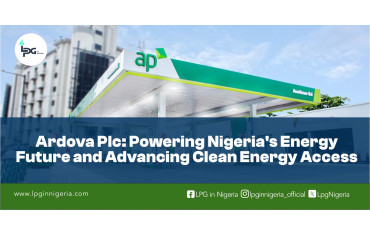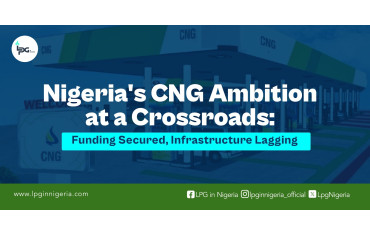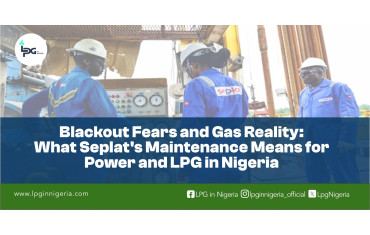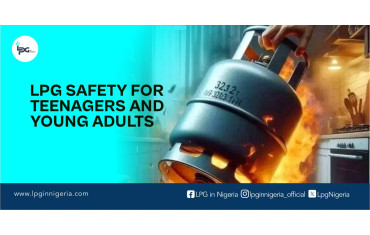- 5025
- 0
Sharing Ideas and Updates on LPG in Nigeria and related information to enable effective collaboration within the LPG Value Chain
The Kolmani Oil Field Has The Capacity To Generate 80,000 MT Of LPG Per Day For Nigeria.

An Oil and Gas Expert, Olanrewaju Aladeitan, has lauded the new oil and gas discoveries in Nigeria, which indicates that the country has vast gas reserves. The expert said Nigeria could be more described as a gas country than a crude oil country because it had trillions cubic feet of gas reserves. Aladeitan, an Associate Professor of Energy and Natural Resources, University of Abuja, made this known in a recent interview in Abuja on Sunday.
This Day News confirmed that President Muhammadu Buhari had, in November 2022, inaugurated the Kolmani Integrated Development Project at Kolmani River II oil field located at a border community between Bauchi and Gombe States. The Nigerian National Petroleum Company Ltd. (NNPCL) in 2019 had announced the discovery of crude oil, gas and condensate in the Kolmani Oil Field with over one billion oil barrels reserves and 500 billion cubic feet of gas. According to our calculations, the Nigerian LPG industry should anticipate 80,000 MT daily of domestically produced LPG. It should be noted that this project has attracted $3 billion investment already which shows its great potential. However, as of now we can only speculate on its impact on LPG production in Nigeria, albeit it mostly points to a positive impact.
Furthermore, it also has an in-situ integrated development plan, which guarantees evacuation and monetization route for the hydrocarbon in the location, thereby eliminating the high cost and burden of building crude and product pipelines. The first phase of the integrated development project would entail an oil refinery of up to 120,000 barrels per day capacity, a gas processing plant of up to 500 million standard cubic feet per day, a power plant of up to 300-megawatt capacity and a fertilizer plant of 2,500 tonnes per day.
It could be recalled that the NNPC had in October 2019 announced the discovery of hydrocarbon deposits in the Kolmani River II Well on the Upper Benue Trough, Gongola Basin, in the North-eastern part of the country. The discovery said to have commercial quantity was the first in the region after several crude oil explorations in the Upper Benue Trough.
The NNPCL is also set to develop the first oil well in Nasarawa State in March 2023 in view of its confirmation of presence of substantial hydro carbon resources in the state. Aladeitan said information from an insider revealed that data emerging from the Bauchi-Gombe axis showed that there was oil in commercial quantity, but with a caveat that gas could be more.
He said some of the new frontiers that were also being discovered in the country even had more gas reserves than crude oil reserves. “Which means Nigeria’s reserve of gas is very huge; somewhere around Igbariam in Anambra we have a huge gas reserve there. Luckily, there are new frontiers coming up, we have the Bauchi-Gombe new oil and gas discovery that is fast coming on and recently in Nasarawa and also Niger. By the time the efforts are taken to the Sokoto Trough, we may also find some reserves there as well,” he said.
According to Africa Oil Gas report, Nigeria exported 700,000 Tonnes of Liquefied Petroleum Gas (LPG) in 2022, even as it grappled with inadequate local production to satiate domestic demand. The country consumed 1.4 million Tonnes in the year, out of which 800,000 Tonnes were imported, according to data by the Nigerian Midstream Downstream Petroleum Regulatory Agency (NMDPRA). Only 600,000 Tonnes of the 1.4 million Tonnes consumed was locally produced, NMDPRA says. As the government scrambles for more domestic LPG output to meet its target demand of 3 million Tonnes for 2023. Local producers of LPG in 2022 included Nigerian Liquefied Natural Gas (350,000 tonnes per year); Kwale Hydrocarbon Nigeria Limited (KHNL) (150,000 Tonnes per year); NNPC E&P Ltd (20,000 Tonnes per year from Egbaoma gas plant).
With Nigeria making an energy transition and energy demand is set to grow across the African continent by 45% through 2050 according to both NNPCL and NLNG. This unexplored discovery of Oil and Gas reserve will help Nigeria achieve its objective to ensure that Africa’s growing demand is met with cleaner fossil fuels. Thus, as was put forward by NNPC Limited there was the need to create strong regulatory framework, and ensure the transfer of technology, innovation and skills to maximize the downstream industry. Financing still remains a problem to ensure that the energy transition plan and projects are bankable while accelerating renewables penetration.
















0 Comment.